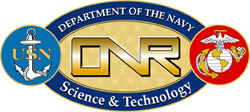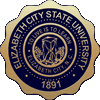
|
|
As a student, I have always had a profound passion for mathematics and computers. My love for math and passion for computers strongly influenced my decision in choosing a major and a minor. I chose mathematics, because it has always been my strongest subject and I find great pleasure in problem solving. Computers, which are becoming a lifeline for today's society, have always been an interest of mine as well. I acknowledged early on that with technology advancing at the rate that it is, a career in the fields of computer science and mathematics would be a wise choice for me, especially as a minority. After obtaining a Bachelor of Science degree in Applied Mathematics, I plan to attend graduate school to pursue a Master's degree in Computer Science and a doctoral degree soon after. In order to better prepare myself for graduate school and
the working world, I have not only conducted research at my instituion,
but I have also participated in summer internship programs. At Elizabeth
City State University, I am a researcher in the Office
of Naval Research (ONR) program. Throughout the school year, many
different training sessions are conducted to expose and enhance the skills
of students using various software packages and platforms. Thus far, the
program has allowed me opportunities to work with UNIX, HTML, C++, Adobe
Photoshop, PageMaker, Remote Sensing, Macromedia Dreamweaver 4.0 and MX,
Macromedia Flash, Macromedia Fireworks, Macromedia Authorware, Earth 2.1,
and ArcView. During my freshman year (2001-2002), I was a member of the
Math of the Great
Dismal Swamp Research Team. Our objective was to use various software
presentation packages to develop a program that would present the water
quality research, history, and geography of the swamp in electronic format.
Our research also included the development of an interactive game, using
mathematics and Great Dismal Swamp information, that would be used in
classrooms of K-3rd grades. As a sophomore (2002-2003), I worked on the
Networking
Team on a project entitled "How To Site Manage Networks, Computers,
And Services Using Administrative Tools." Our focus was to implement local
and global site polices that would allow our team to effectively administer
the existing ONR and Center of Excellence in Remote Sensing Education
and Research (CERSER) networks. My junior year (2003-2004), I worked on
the Remote
Sensing/Satellite Imagery team on a project entitled "Remote
Sensing of Turbidity and Water Clarity in the Atlantic Ocean with the
use of SeaWiFS Data." ONR strongly encourages its participants to apply and take part in summer internships. During the summer of 2002, I was afforded the opportunity to participate in the Undergraduate Institute in Physics - Research Experience for Undergraduates (UnIPhy-REU) at Hampton University in Hampton, Virginia. The title of my research was "The Analysis of Fuel Optimal Periodic Trajectories." The project entailed flying conventional aircrafts on periodic cruise trajectories, using an optimization program, in order to determine if flying periodically is more fuel-efficient than flying steady-state. In order to make the data more accessible and easier to analyze, an analysis package was developed using MATLAB. Thus far, I have presented my research at the Thomas Jefferson National Accelerator Facility, better known as "Jefferson Lab," in Newport News, Virginia, at the 12th Annual SOARS Conference, held on the campus of North Carolina Central University, in the fall of 2002, and at the 2003 Council on Undergraduate Research Symposium: "Posters on the Hill". During the summer of 2003, I was an intern in the Undergraduate Research Experience in Ocean, Marine, and Space Science at Elizabeth City State University. The title of my group’s project was “Science, Settlement, and Remote Sensing: Locating the Remains of the Lost Colony of Northeastern North Carolina.” The focus of our project was to use the available remote sensing technologies and capabilities to try and figure out the 400-year old question of: “What happened to the Lost Colony of Roanoke?” During the summer of 2004, I again participated in the URE-OMS program on a project entitled "The Spatial and Temporal Variability of the Northwestern Gulf of Mexico." My research experiences have all been priceless opportunities. These opportunities are steps that I now am able to climb in my journey to success. I plan to continue to conduct research and expand my horizons in all areas so that I will be a well-rounded individual with a broad list of capabilities. |

